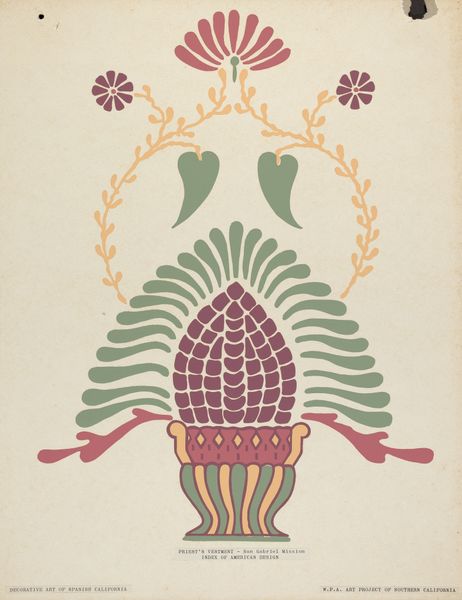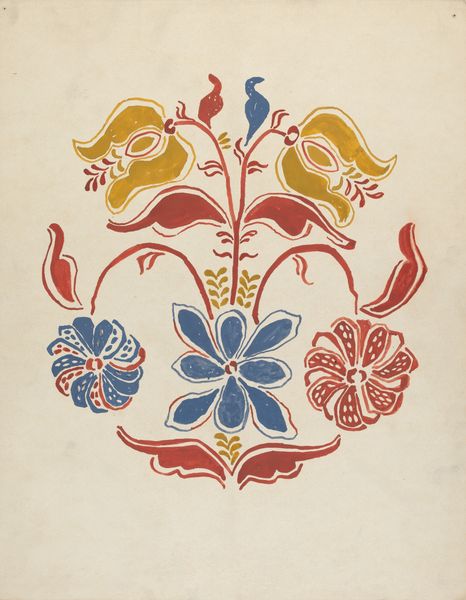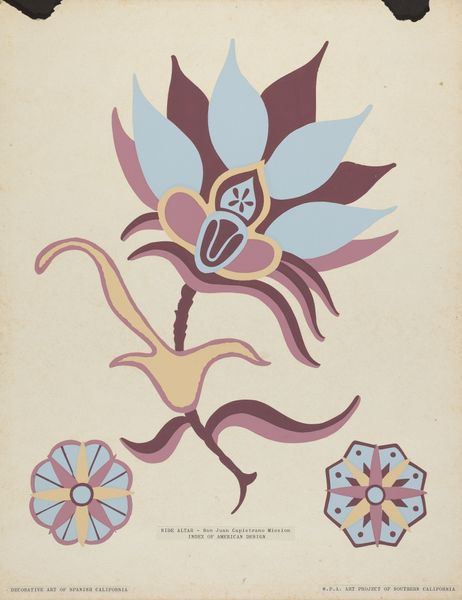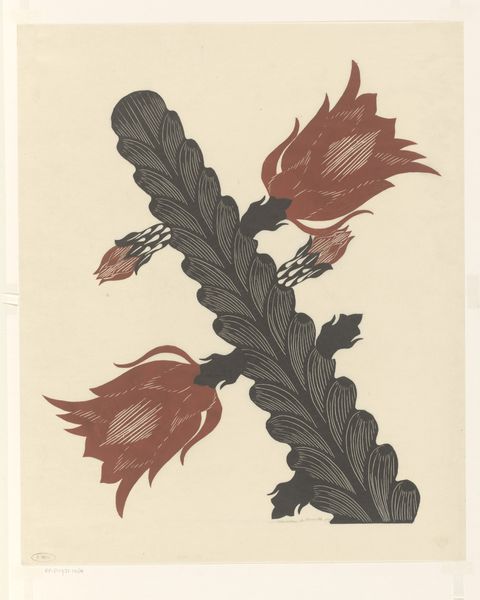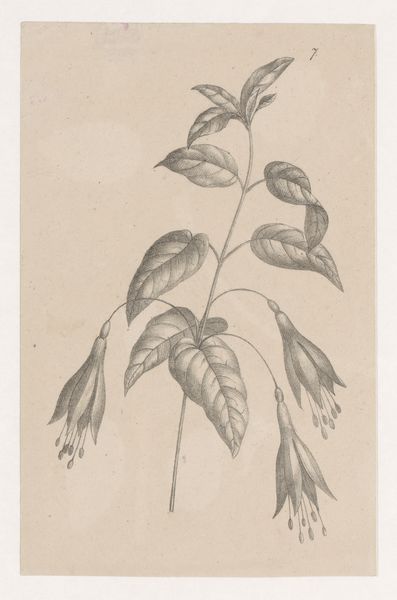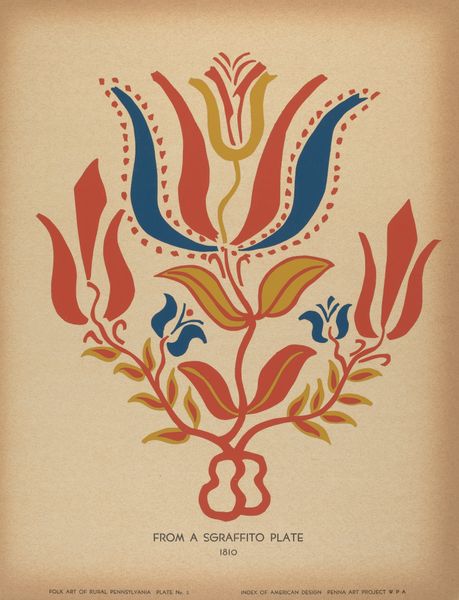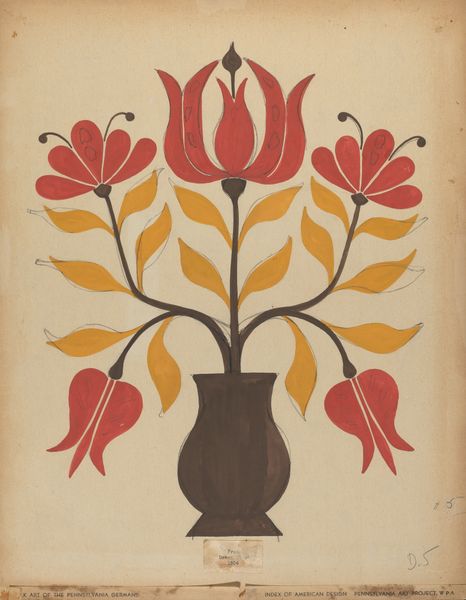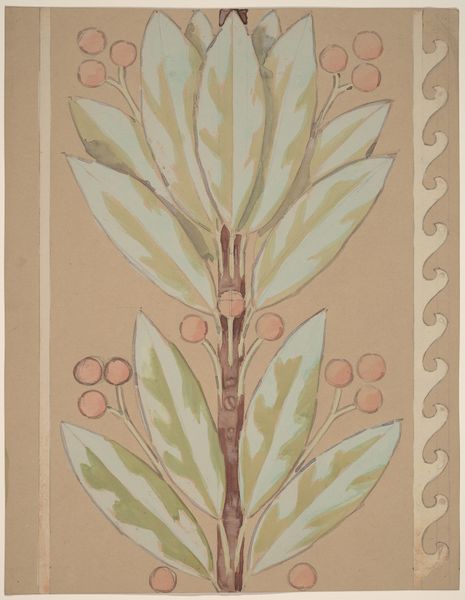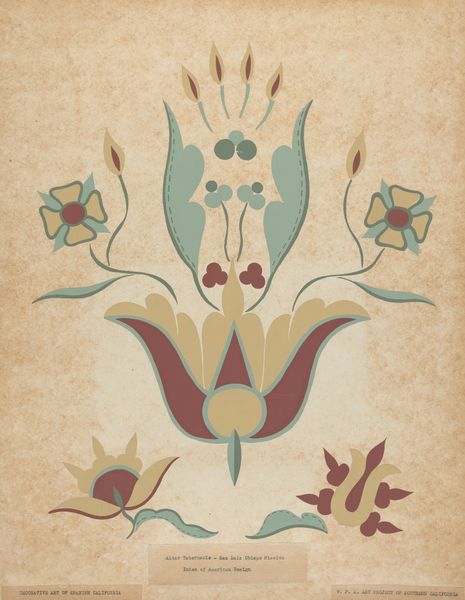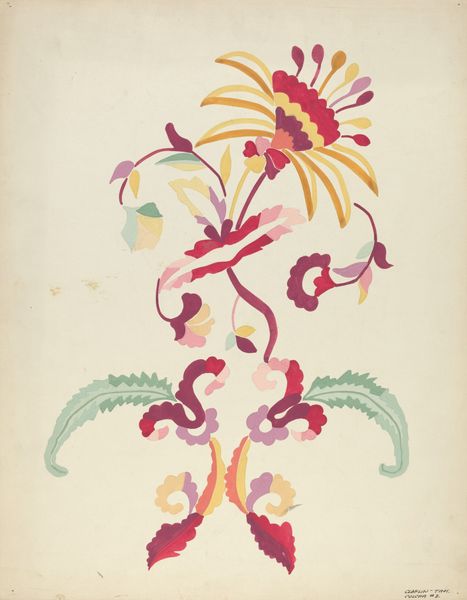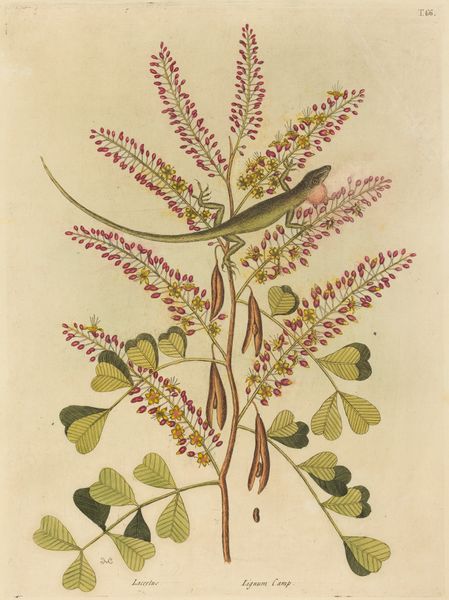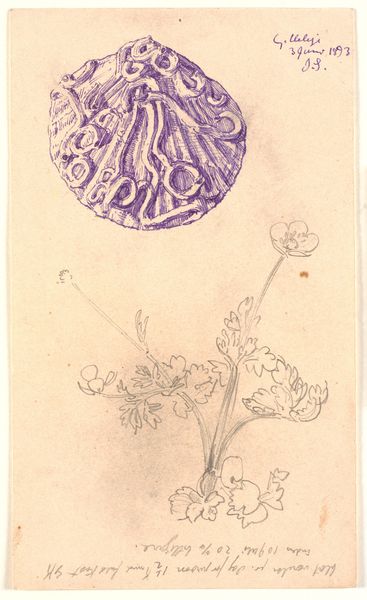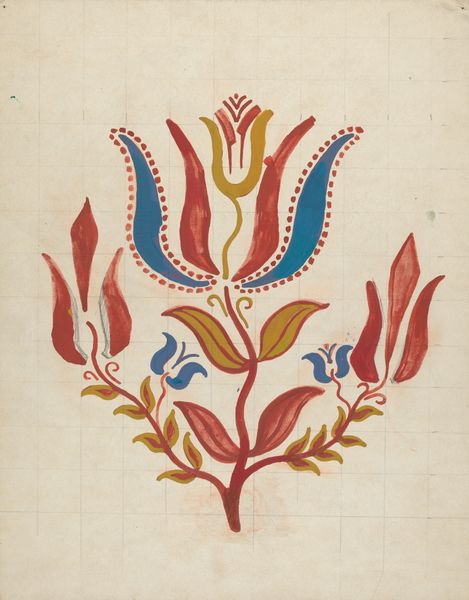
San Gabriel Mission Priest's Vestment from the portfolio "Decorative Art of Spanish California" 1935 - 1942
0:00
0:00
drawing, watercolor
#
drawing
#
water colours
#
watercolor
#
folk-art
#
geometric
#
ceramic
#
watercolour illustration
#
decorative-art
Dimensions: overall: 45.7 x 35.5 cm (18 x 14 in.)
Copyright: National Gallery of Art: CC0 1.0
Editor: This watercolor drawing from between 1935 and 1942 depicts a San Gabriel Mission Priest’s Vestment and comes from the portfolio "Decorative Art of Spanish California." I find the limited color palette and geometric shapes create a sense of folk-art simplicity, despite its ceremonial function. What stands out to you? Curator: I immediately think of the broader context of the Works Progress Administration and its impact. This portfolio emerges from a specific historical moment during the Great Depression, right? How does understanding the WPA, a program intended to support artists and preserve American crafts, influence our interpretation of this vestment design? Editor: That's a great point. I hadn't thought about the WPA's role in preserving cultural heritage. Does knowing it was part of a government initiative change how we view its artistic value or authenticity? Curator: Absolutely. It raises questions about who defines "American" design and whose heritage is being preserved. This decorative style reflects the colonial history of Spanish California. Can we consider its implications regarding cultural appropriation, particularly concerning the indigenous communities impacted by the mission system? How do we reconcile its beauty with its historical complexities? Editor: It definitely adds another layer. So it is not simply a pretty drawing but also a historical and social artifact with many cultural implications regarding identity, cultural appropriation, and government intervention in the arts. Curator: Exactly. By looking at it through these intersectional lenses, we appreciate how seemingly simple artwork can reflect the complexities of history, power, and representation. I learned something new about the WPA, thank you. Editor: Agreed, this exercise has given me a lot to consider beyond just the visual elements!
Comments
No comments
Be the first to comment and join the conversation on the ultimate creative platform.
